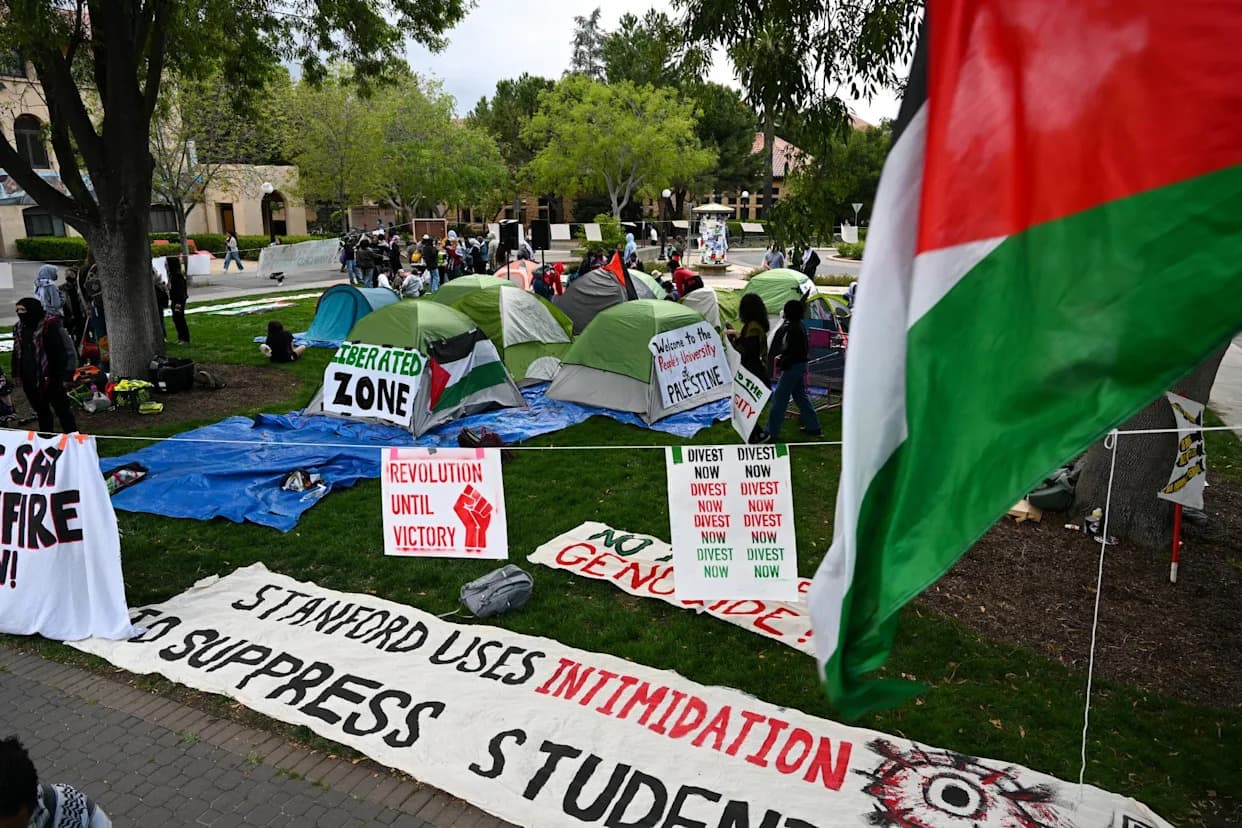Key points: Members of By Any Means Necessary (BAMN) voted unanimously to escalate efforts to oppose Turning Point USA chapters on college campuses and in K–12 schools, beginning with Berkeley High School. Federal investigators are reviewing whether last week’s UC Berkeley confrontation involved coordinated disruption that violated free-speech rights. Reporting links BAMN’s organizing to a 501(c)(3) fiscal sponsor, raising questions about the legal boundaries between charitable activity and political organizing. Observers stress the legal distinction between lawful protest and unlawful intimidation.
Berkeley Group BAMN Votes to Escalate Campaign Against Turning Point USA, Targets K–12 Schools

At a Sunday afternoon gathering described by participants as a "tribunal," Yvette Felarca, a Berkeley public school teacher and longtime local activist, led roughly 40 members of By Any Means Necessary (BAMN) in an after-action meeting celebrating what they called a "victory" during a violent confrontation at the University of California, Berkeley. Members voted unanimously to expand efforts to oppose Turning Point USA chapters on college campuses and in K–12 schools, beginning with Berkeley High School.
Plans and Tactics
Attendees approved a slate of actions to "stop fascist recruiting in schools," including intensified outreach to teachers and students, classroom canvassing, public demonstrations and fundraising under a Detroit-based 501(c)(3) fiscal sponsor identified in materials as the Coalition to Defend Affirmative Action, Integration and Immigrant Rights and Fight for Equality. The meeting concluded with a shouted show of unity; Felarca led participants in a closing yell of "Solidarity!"
At the meeting Felarca urged members not to rely on school administrators alone to block or limit Turning Point USA activities. "I know it's possible to stop it," she said, calling for collective action similar to the campus protests. She described mobilizing students and teachers to prevent campus and school chapters from organizing.
Broader Investigations and Legal Questions
Federal authorities, including Justice Department investigators, are reviewing last week’s UC Berkeley confrontation to determine whether actions by BAMN and allied groups unlawfully suppressed the free-speech rights of event participants through coordinated disruption or intimidation. Legal advocates and observers described the inquiry as an attempt to determine whether the protests were spontaneous or premeditated and coordinated across organizations.
An attorney involved in the civil-rights inquiry, Harmeet Dhillon, has been connected in reporting to related civil litigation involving Felarca in prior years. In 2018, a court ordered Felarca to pay legal fees in a dispute over a restraining-order claim filed against a campus student leader. Felarca has also been involved in earlier campus protests that sought to block particular speakers.
Allegations About Structure and Funding
Reporting and metadata tied to protest materials have linked BAMN’s organizing to a federally recognized 501(c)(3) nonprofit identified as the United for Equality and Affirmative Action Legal Defense Fund. Those links have prompted questions about whether charitable status and tax-deductible donations are being used to support activities that many would consider political or intimidating rather than purely charitable. Experts warn such situations can strain nonprofit regulatory frameworks and raise potential legal issues.
At the same meeting members also approved a plan to distribute devices known as "ICE whistles," intended to alert communities about Immigration and Customs Enforcement activity, and to brand the devices with the BAMN name. They also discussed moving to "stop and block" ICE officers — a tactic advocated in some activist communities.
Claims, Arrests and Campus Tension
Police made several arrests during the UC Berkeley clash; one protester was accused of stealing a chain necklace from an attendee wearing a "Freedom" T-shirt. Organizers described the campus action as preplanned and coordinated across multiple groups, involving canvassing, preprinted flyers and rapid mobilization aimed at confronting a scheduled Turning Point USA event.
Groups Named in Reporting
Reporting identified seven organizations that were involved in planning or mobilization efforts. Descriptions below summarize the published characterizations and are framed as reported affiliations or positions:
- By Any Means Necessary (BAMN) — a far-left initiative that solicits donations through a Detroit-based 501(c)(3) fiscal sponsor.
- Gabriela Berkeley — the local chapter of an international Filipino women’s organization involved in progressive and transnational advocacy.
- JVP UC Berkeley — the campus chapter of Jewish Voice for Peace, an advocacy organization critical of Israeli government policy.
- Koreans 4 Decolonization UCB — a student chapter focused on decolonization and opposition to U.S. military presence abroad.
- Students for Socialism — the student wing associated with the Party for Socialism and Liberation; its legal and tax status was not fully documented in reporting.
- Young Democratic Socialists of America — the youth affiliate of the Democratic Socialists of America, organized as a 501(c)(4) nonprofit.
- Students Organizing for Liberation — a Berkeley student group described in reporting as having limited public information on funding and leadership.
Several of the named organizations did not respond to requests for comment in the reporting that first identified them as participants in the mobilization.
Legal and Free-Speech Implications
Legal experts emphasize the distinction between protected protest activity and unlawful intimidation or interference with the rights of others. Courts have consistently warned against the so-called "heckler's veto," in which hostile reaction is used to silence a speaker or viewpoint. Observers say ensuring open debate while maintaining public safety is a central challenge for university and K–12 administrators.
Felarca, who immigrated as a child from the Philippines, has a long history of campus and community activism and involvement in contentious protests. She has faced previous legal penalties and court orders in related disputes.
As the group voted to escalate, Felarca invited dissenting voices to speak; no one responded. Federal investigators and local officials continue to review the events and the groups’ alleged coordination as part of ongoing inquiries.
Help us improve.


































